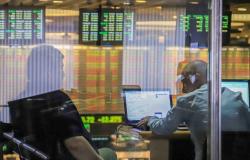The total demand for green jobs in Spain will grow by 38% between now and 2030, but the gap between what is needed and what is actually generated, between supply and demand, means that, if appropriate measures are not taken, we find ourselves with a deficit of 42,600 jobs in that period of time, according to the study Green economy and the impact on work 2024, from Randstad. “And, globally, the energy sector is expected to gain eight million jobs worldwide,” says Sandra Martín, commercial director in the Energy sector of the Dutch human resources consultancy.
Data and environment point in a single direction: that of considerable growth in jobs related to the energy transition, sustainability and, in general, the green economy, driven by global initiatives such as the UN Sustainable Development Goals, the Agenda 2030 or the declared purpose of the European community to achieve a carbon-neutral economy by 2050.
Those eight million jobs that, for example, it is estimated that the renewable energy sector will generate worldwide will more than compensate for the 2.5 million workers currently employed in the field of fossil fuels, who will need to retrain professionally: “If we are able to do reskilling With all those jobs, we will continue to have an increase of 5.7 million jobs. The problem is that, along with the great demand for professionals, we have an enormous lack of specialized profiles,” says Martín. And that, he warns, is the greatest challenge: today, neither the training market is prepared nor can organizations supply themselves with enough professionals.
Where will the greatest number of green jobs be created?
The constant growth of clean and sustainable energies such as wind, solar or hydroelectric; the progressive introduction of biofuels; the new needs linked to resource and waste management; and even opportunities related to organic farming and green technology serve to illustrate a clear employment (and therefore training) trend in the coming decades. But providing all these new professionals involves making a greater educational effort both from the revamped dual FP and at the university level and through continuous training within the companies themselves.
“With regard to Vocational Training, specialized modules in renewable energy and sustainability are being introduced, and there are also advances in modules related to electronics. And, at the university level, degrees and master’s degrees have been created in fields such as renewable energies, environmental engineering and sustainability management. But it is necessary to continue betting and adapting this continuous supply and demand,” explains Martín. A need that, he indicates, requires greater collaboration between educational institutions and companies and industries.
“But, in addition, we must continue promoting continuous training and reskilling (or professional retraining) of workers who are not currently dedicated to green jobs, but who can obviously adapt to all these new emerging roles,” he adds. Profiles such as, for example, that of an electrician, whose skills would be perfectly valid to become a solar panel installer, but which in any case are very diverse in nature: from engineers to senior technicians and even from fields traditionally outside the sector, such as specialized lawyers and economists. The need permeates companies in the energy sector, where 55% of organizations already invest in the reskilling of its workers.
Now, from what areas will these new professionals come? At the university level, “the necessary qualifications or studies focus fundamentally on STEM disciplines, whether scientific (Physics, Chemistry or Biology) or engineering and computer science,” as already indicated by Carlos Díaz-Guerra, professor at the Faculty of Sciences. Physics from the Complutense University of Madrid, to this newspaper in 2022. But it is also, in any case, a transformation that makes it necessary to create new categories of jobs capable of covering these new needs. Thus, Sandra Martín, from Randstad, points out five different ecosystems:
- Regarding the carbon capture and utilization: machinery installers, maintenance and repair technicians and, in general, workers in the construction sector
- In it hydrogen sector: maintenance, production and assembly.
- The predictable increase in demand for electric vehicles On the other hand, it will cause jobs to double and even triple: specialists in batteries and energy, experts in software and everything related to data analysis, for example.
- Jobs related to energy efficiency, from technicians to management specialists.
- Jobs related to the electrical network.
On the other hand, among the different challenges facing the sector, Martín does not fail to point out two: the need to improve linguistic skills in English and the lack of gender diversity, especially in occupations related to the installation and maintenance of facilities.
The role of the university in the future of green employment
Talking about jobs related to the energy transition or the new needs linked to sustainability and the green economy is, in any case, talking about the numerous specialization options that the university offers through master’s degrees or postgraduate programs. Not in vain “universities are leading sustainability training through the integration of the SDGs in their study plans, applied research, community commitment and the implementation of sustainable practices on their own campuses,” explains Jorge Gómez, vice chancellor. of Technology and Sustainability of the Complutense University. The Madrid academic institution also stands out as the most sustainable Spanish university in the world. GreenMetric University Rankings 2023, where it ranks 35th worldwide.
“An important part of the most in-demand skills will be technological, but social science profiles will contribute a lot in this aspect. We are talking about sector regulations, training in the green economy, defining policies that help achieve the SDGs… All of these issues must be developed by professionals with multidisciplinary training,” says Gómez. Thus, for example, the postgraduate programs offered by the Complutense are a good example of the role that universities play in the preparation of specialized professionals in any of these areas:
- Strategies and Technologies for development (in collaboration with the Polytechnic University of Madrid (UPM).
- Ecosystem Restoration (together with the University of Alcalá de Henares, the UPM and the Rey Juan Carlos). A training aimed at recovering lost biodiversity.
- Masters in Conversation Biology and Industrial and Environmental Biotechnology.
- Master and PhD in Ecology.
- Master in Energy, aimed at engineers and engineering graduates.
- Master in Environmental Geology, a program that prepares you for work in research, development and innovation in public or private centers, and that covers fields as varied as water and waste resources management, environmental regulation, water and soil decontamination , environmental impact assessments and the restoration of degraded spaces, among others.
Are Spanish companies sustainable?
Nine out of 10 Spanish companies carry out actions to contribute to the achievement of the SDGs, according to a study carried out in 2022 by the United Nations Global Compact Spain that included the participation of 2,500 companies. And, although 79% of them recognize that there are competitive advantages when implementing the framework, only 41% have a sustainability strategy or are committed to reducing their emissions. In short: we are on the right track, but there is still much to do.
On the other hand, a look at IBEX 35 companies reveals that 86% of them have already established a year to achieve climate neutrality, 94% carry out measures related to the circular economy and all of them have committed to reducing its CO2 emissions. This is stated in the report Sustainability in IBEX companies: Analysis 2023, of the Spanish Network of the Global Compact. For Cristina Sánchez, its executive director, “companies have the opportunity to lead the way towards a more sustainable and resilient future (…). We are seeing a historic shift in the way companies address climate change. “Each goal established is a commitment to the future, one more step towards a world where sustainability and prosperity go hand in hand.”
TRAINING THE COUNTRY in Twitter and Facebook
Subscribe to the newsletter of EL PAÍS Training






